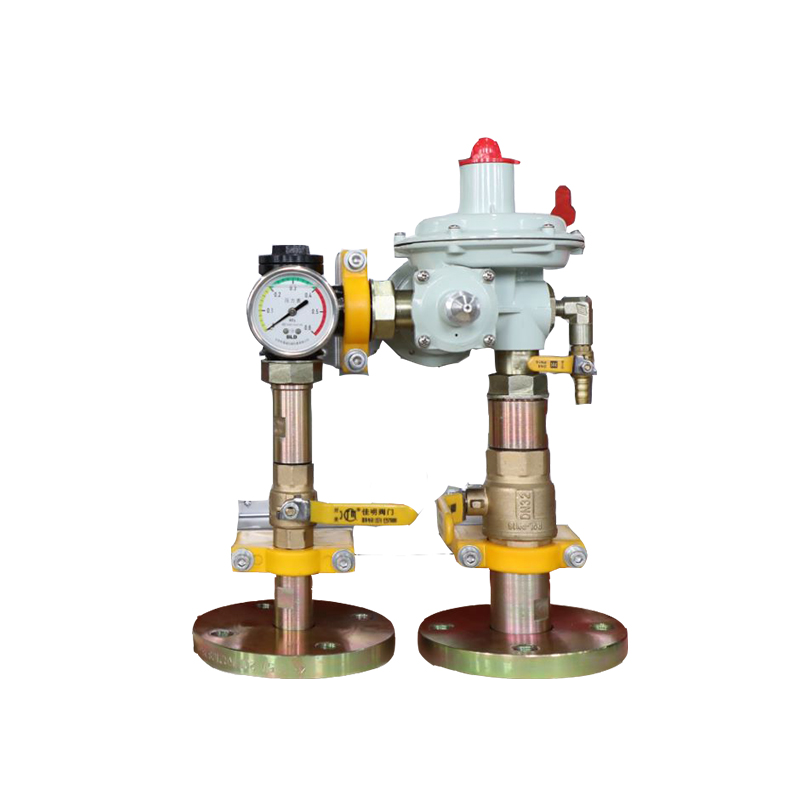
Nov . 08, 2024 23:52
Back to list
Air Control Valve Mechanism for Efficient Pneumatic System Management
The Role of Air Control Valves in Modern Automation
Air control valves play a pivotal role in modern automation systems, particularly in pneumatic applications. They are essential components that regulate the flow and pressure of compressed air, which is the lifeblood of many industrial processes. Understanding the function and significance of air control valves helps in appreciating their critical role in enhancing efficiency, safety, and reliability in various systems.
What are Air Control Valves?
Air control valves are devices designed to control the volume and pressure of air in pneumatic systems. They can be actuated manually or automatically and are crucial for directing air to various components such as cylinders, actuators, and other machinery. These valves can be categorized into several types, including solenoid valves, directional control valves, flow control valves, and pressure control valves. Each type serves a specific function in the system, allowing for precise control over air movement.
How Air Control Valves Work
In a typical pneumatic system, air is compressed and stored in a tank. When the system requires air, control valves regulate its release. For instance, a directional control valve can determine the path of air flow to actuate a cylinder. Solenoid valves, which operate electrically, offer rapid switching and can be incorporated into automated control systems.
.
Importance of Air Control Valves
صمام التحكم الهوائي

1. Efficiency In an industrial setting, efficiency is paramount. Air control valves enable systems to operate smoothly by ensuring the correct amount of air flows through at the right time, thereby reducing wastage and improving energy consumption.
2. Safety Pneumatic systems can be dangerous if not properly controlled. Air control valves prevent over-pressurization, which can lead to equipment failure or accidents. By ensuring that pressure levels remain within designated thresholds, these valves contribute to a safer working environment.
3. Flexibility Modern air control valves offer significant adaptability. With advancements in technology, many valves can be integrated with smart systems that allow for remote monitoring and control. This is particularly beneficial in complex operations that require real-time adjustments to air pressure and flow.
4. Maintenance and Reliability Air control valves are designed for durability, often made from robust materials to withstand harsh industrial environments. Regular maintenance can prolong their lifespan and ensure consistent performance, minimizing downtime and repair costs.
5. Applications The applications of air control valves are diverse. They are commonly used in manufacturing processes, automotive assembly lines, food processing, and even in medical equipment. Their versatility makes them indispensable in various industries.
Conclusion
In conclusion, air control valves are fundamental components of pneumatic systems that enhance operational efficiency, ensure safety, and provide flexibility across diverse applications. As automation continues to advance, the importance of these valves will only grow, underscoring the need for industries to invest in high-quality air control mechanisms. Proper selection, installation, and maintenance of these valves are crucial for achieving optimal performance in any pneumatic system.
Latest news
-
Safety Valve Spring-Loaded Design Overpressure ProtectionNewsJul.25,2025
-
Precision Voltage Regulator AC5 Accuracy Grade PerformanceNewsJul.25,2025
-
Natural Gas Pressure Regulating Skid Industrial Pipeline ApplicationsNewsJul.25,2025
-
Natural Gas Filter Stainless Steel Mesh Element DesignNewsJul.25,2025
-
Gas Pressure Regulator Valve Direct-Acting Spring-Loaded DesignNewsJul.25,2025
-
Decompression Equipment Multi-Stage Heat Exchange System DesignNewsJul.25,2025

